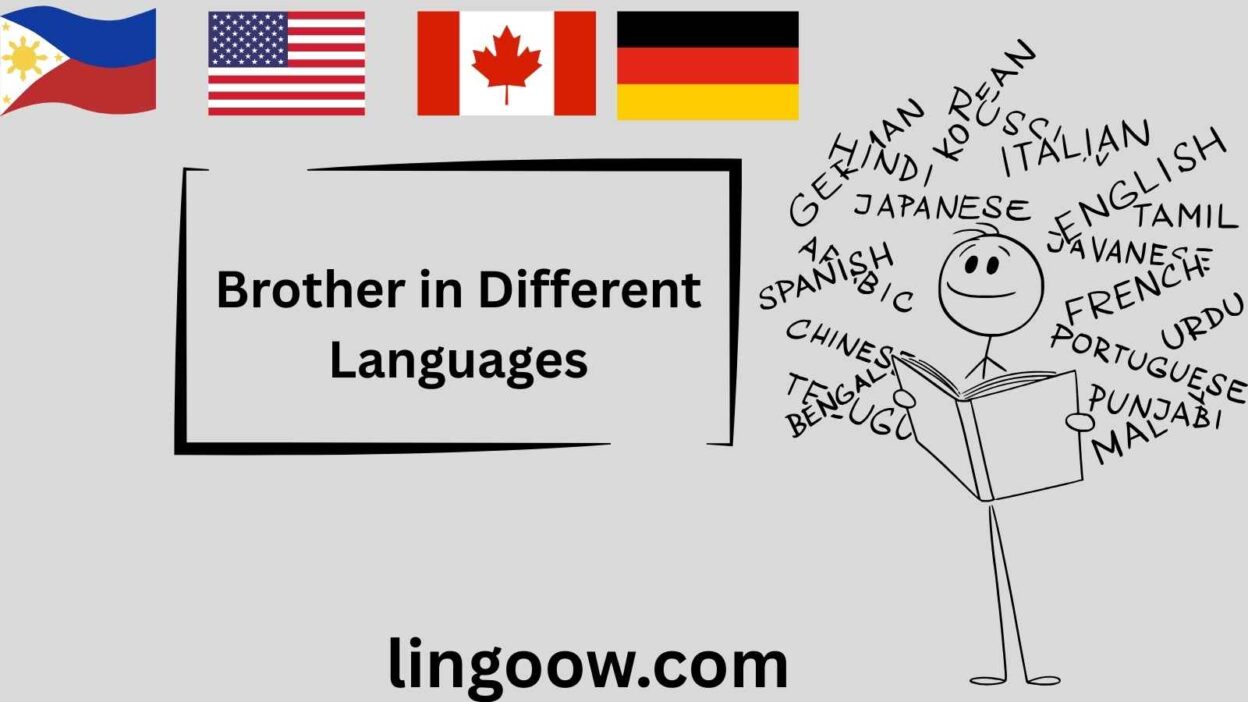As the sun sets over the vibrant landscapes of Africa, a chorus of voices rises—each distinct, yet woven into the fabric of a shared humanity. I recall standing in a bustling market in Nairobi, where vendors called out in Swahili, their words dancing with the rhythm of life. Nearby, a group of friends laughed in Yoruba, their voices carrying stories of family and tradition.
It struck me how the simple word for “love”—so universal in its essence—takes on unique shades of meaning across Africa’s diverse languages. This word, a thread connecting hearts across cultures, embodies joy, sacrifice, and community. In this exploration, we dive into how “love” is expressed in African languages and beyond, revealing a universal theme: love transcends borders, yet its expression is as diverse as the continent itself.
Reference Table: The Word for “Love” Across Languages
Below is a table showcasing how “love” is expressed in various African and global languages, with cultural insights into its usage.
| Language | Word for “Love” | Cultural/Linguistic Insight |
| Swahili | Upendo | Rooted in community, “upendo” often extends beyond romantic love to include familial bonds. |
| Zulu | Uthando | “Uthando” reflects deep emotional connections, often tied to respect and unity in Zulu culture. |
| Yoruba | Ifẹ | In Yoruba, “ifẹ” signifies a selfless, enduring love, often linked to spiritual devotion. |
| Amharic | Fikir | “Fikir” conveys both romantic and platonic love, often poetic in Ethiopian storytelling. |
| Shona | Rudo | In Zimbabwe, “rudo” emphasizes love as an act of giving, central to family and community. |
| Hausa | Soyayya | “Soyayya” in Hausa culture often celebrates love through poetry and music in northern Nigeria. |
| Igbo | Ịhụnanya | “Ịhụnanya” reflects a deep, protective love, often tied to family and communal ties in Igbo society. |
| Xhosa | Uthando | Similar to Zulu, “uthando” in Xhosa culture emphasizes love as a binding force in community. |
| Twi (Akan) | Ɔdɔ | In Ghana, “ɔdɔ” symbolizes a nurturing love, often expressed through acts of care. |
| Wolof | Jabar | In Senegal, “jabar” is tied to romantic love, often celebrated in vibrant cultural expressions. |
| French | Amour | In Francophone Africa, “amour” carries romantic and poetic connotations, influenced by French literature. |
| Arabic | Hubb | Across North Africa, “hubb” reflects both romantic and divine love, rooted in Islamic tradition. |
| Mandarin | Ài | In African diaspora communities, “ài” emphasizes harmony and balance in relationships. |
| Hindi | Pyar | Used in Indian-African communities, “pyar” signifies deep emotional bonds, often familial. |
| Maori | Aroha | In diaspora communities, “aroha” extends to compassion and respect for all living things. |
European Languages
In African nations with colonial histories, European languages like French, Portuguese, and English shape expressions of love. In Francophone countries like Senegal or Côte d’Ivoire, “amour” (French) is imbued with romantic elegance, often evoking poetry and art. In Lusophone Angola and Mozambique, “amor” (Portuguese) carries a passionate, soulful tone, reflecting Catholic influences. English-speaking nations like Nigeria and Kenya use “love,” but its meaning shifts depending on local dialects and cultural contexts—often blending with indigenous terms like “ifẹ” or “upendo” to express deeper communal bonds. These languages, while imported, have been adapted to reflect African values of community and resilience.
Asian Languages
In African communities with Asian diaspora, languages like Mandarin, Hindi, and Arabic add layers to the concept of love. In South Africa’s Indian communities, “pyar” (Hindi) signifies a nurturing, familial love, often expressed through shared meals and festivals. In North Africa, “hubb” (Arabic) resonates in 20+ countries, from Morocco to Egypt, blending romantic and divine love, as seen in Sufi poetry. Mandarin’s “ài,” heard in growing Chinese-African communities, emphasizes balance and mutual respect. In Mauritius, where Indian and Chinese influences merge, these terms coexist with Creole expressions, creating a unique linguistic tapestry.
African Languages
Africa’s linguistic diversity—over 2,000 languages—offers a rich palette for expressing love. In East Africa, Swahili’s “upendo” is a cornerstone of community, used in songs and daily greetings across Kenya, Tanzania, and Uganda. In South Africa, Zulu and Xhosa share “uthando,” a term that binds families and tribes, reflecting ubuntu—the philosophy of shared humanity. In Nigeria, Yoruba’s “ifẹ” and Igbo’s “ịhụnanya” carry spiritual weight, often tied to proverbs and oral traditions. In Ghana, Twi’s “ɔdɔ” emphasizes caregiving, while in Ethiopia, Amharic’s “fikir” is poetic, used in love songs across 20+ African nations. These terms, rooted in cultural practices, highlight love as a collective, enduring force.
Indigenous & Island Languages
Beyond mainland Africa, indigenous and island languages offer unique perspectives. In diaspora communities, Maori’s “aroha” (New Zealand) emphasizes compassion, influencing African-Pacific exchanges. Hawaiian’s “aloha,” used in Pacific-African cultural festivals, conveys love as a universal greeting. In the Americas, Cherokee’s “gvgeyu” reflects love for family and land, resonating with African diaspora values. Samoan’s “alofa,” heard in Pacific communities, mirrors African communal love. These terms, spanning 20+ countries through migration, highlight love’s role in preserving cultural identity.
Cultural Insights
The word for “love” has evolved through trade, migration, and colonization. In ancient African kingdoms like Mali, love was expressed through griot storytelling, blending oral history with emotional depth. In Islamic North Africa, “hubb” draws from Quranic traditions, emphasizing divine love. Colonial languages like French and Portuguese introduced romantic individualism, but African cultures adapted these terms to reflect collective values. For example, Swahili’s “upendo” gained prominence through 19th-century trade networks, becoming a unifying term in East Africa. This evolution underscores love’s adaptability, rooted in tradition yet shaped by history.
Proverbs
Proverbs about love reflect cultural wisdom:
- Swahili (Kenya/Tanzania): “Penzi la mama haliishi” – “A mother’s love never ends,” emphasizing maternal devotion.
- Yoruba (Nigeria): “Ifẹ o ni ida” – “Love has no sword,” meaning true love is gentle and forgiving.
- Zulu (South Africa): “Uthando lwesibili aluhlulwa” – “Second love is not defeated,” celebrating enduring relationships.
- Arabic (North Africa): “Al-hubb a‘mā” – “Love is blind,” a universal sentiment adapted to local poetry.
- Twi (Ghana): “Ɔdɔ yɛ wu a, ɛnyɛ hwee” – “Love is stronger than death,” highlighting its eternal nature.
FAQs
Why does “love” sound similar in some languages? Shared linguistic roots, like Arabic’s influence on Swahili, and colonial languages like French, create similarities. Trade and migration also spread terms across regions.
What’s the oldest known usage of a word for “love”? Ancient Egyptian texts used “mer” to describe love, dating back over 4,000 years, often tied to divine and familial bonds.
How do cultural differences shape the expression of love? In African cultures, love often emphasizes community and duty (e.g., ubuntu in Zulu/Xhosa), while European influences highlight romantic individualism.
Conclusion
From the poetic “fikir” in Ethiopia to the communal “upendo” in Kenya, the word for “love” carries the heartbeat of Africa’s diverse cultures. It binds families, inspires art, and transcends borders, yet its expression is uniquely shaped by each language and tradition. This universal yet diverse concept reminds us of our shared humanity. How do you say “love” in your language? Share your stories in the comments—we’d love to hear how this word resonates in your world!




